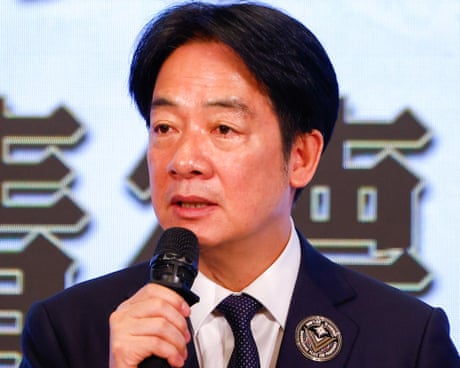Taiwan at a Crossroads: Peace, Democracy, and Regional Tensions
Taiwan is a vibrant democracy and a key player in the Asia-Pacific region. Its unique political situation has drawn global attention, especially as it navigates complex relations with neighboring China. As tensions in the Taiwan Strait rise, the island's future remains a subject of intense international debate.

Taiwan’s Commitment to Peace and Democracy
On the anniversary of his presidency, Taiwan’s President Lai Ching-te delivered a message of hope and resilience. He emphasized that "peace is priceless" and made clear that war benefits no one. As Taiwan faces ongoing military activity near its borders, Lai reached out to China with a call for productive dialogue. His administration has consistently sought to protect democratic values and the free will of Taiwan’s people.
To understand Lai's stance and recent remarks in context, read The Guardian's coverage on President Lai's call for peace and dialogue. The article explains how Taiwan aims to balance calls for good relations with a firm commitment to self-defense.
Managing Cross-Strait Relations
Taiwan's relationship with China remains challenging. Since the pro-sovereignty Democratic Progressive Party gained power, formal talks with Beijing have been on hold. China regards Taiwan as part of its territory, while many in Taiwan value their autonomy and unswerving pursuit of democracy.
The cross-strait impasse has led to a visible increase in Chinese military maneuvers around Taiwan. For more on Taiwan's evolving position and how its leadership is responding to Beijing's actions, see Bloomberg's analysis of Lai Ching-te's stance on China.
International Reactions and Regional Security
The world watches Taiwan closely as it tries to steer clear of direct conflict. International allies, including the United States and several European nations, frequently express concerns over any escalation of tensions. There are growing debates worldwide on how to secure peace and stability in the Taiwan Strait. Reuters offers insight on Taiwan’s readiness to engage in talks with China, spotlighting the island’s diplomatic efforts amid rising uncertainty.
Domestic Challenges and Democratic Values
Internally, Taiwan grapples with political divisions. The current administration faces opposition in the legislature, yet President Lai has moved to improve unity by inviting opposition leaders to national security briefings. Despite political friction, the robustness of Taiwan's democracy is evident in its vibrant political debates and commitment to transparency.
Conclusion: Taiwan’s Future on the Global Stage
Taiwan stands at a crucial intersection. Its citizens cherish peace and democracy, even as outside pressure mounts. By promoting dialogue and sticking to core democratic principles, Taiwan inspires those who value freedom and coexistence. The world will continue to monitor Taiwan's journey carefully, recognizing its influence on peace and stability across Asia and beyond.